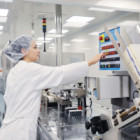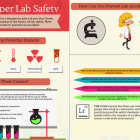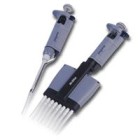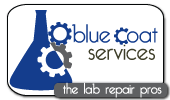Laboratory Equipment Repair v. Replacement
Posted by bluecoatservices on Apr 3, 2015 in bcs News
Accuracy of results is the ideal you strive for in your lab. Equipment that is not working correctly has a negative impact on the results of your tests. Your findings can be compromised and probably need to be discarded. To correct this problem, you’ll need to get the instruments calibrated or repaired, or replaced. Often, labs have their own technicians attempt to repair their lab instruments. And just as often, this can be a problem. When laboratory equipment is repaired, it must be repaired by a qualified and trained technician. To repair, or to replace? We discuss these options below: Replacing Equipment: Replacing laboratory equipment is always the first thought when an instrument goes down. There can be a variety of reasons for replacing laboratory equipment. Many times, depending upon the part that’s malfunctioning, people will weigh the age and usage of laboratory equipment to see if they can get more out of their instrument. Sometimes the laboratory equipment has been used for so many years beyond its life cycle, and often beyond its capacity that replacement is the only choice. As this is the surest but most costly option, if you have the money it will be an easy decision to make. With new equipment, you pay more and you are ensured 1-3 years of care free maintenance, if handled appropriately. But not every lab has the budget to replace malfunctioning equipment. In these circumstances, repair and calibration provide you with improved and consistent results. Maintenance and Repair of equipment: Proper maintenance and repair is a very cost effective way of keeping your lab in good working condition. Technical procedures of the equipment must be followed for the maintenance of laboratory equipment. Proper maintenance records must be kept in order to keep sufficient intervals for the next date of maintenance. If the equipment is not running correctly and is out of calibration, it reduces the accuracy of laboratory equipment. Maintenance includes proper cleaning, handling, calibration and steps that will help prevent breakage or damage. When the procedure is followed correctly, you can be assured of the reliability of your equipment. Sensitive instruments such as incubators, shakers, liquid handlers, plate readers, thermo-cyclers and centrifuge require attention, maintenance and calibration on a regular basis to perform to your standard. Maintenance and calibration of laboratory equipment is important to ensure dependability of results, and long time reliability. Proper...
Read MoreWhat Would Another Shutdown Mean to Our Nation’s Laboratories?
Posted by bluecoatservices on Nov 11, 2013 in bcs News

The sixteen-day government shutdown in October was a scary problem for many Americans. Many government workers were furloughed for a portion or the entirety of the shutdown; travelers’ plans were detoured as all national monuments and parks were closed; and funding for some of our most important programs, including those in public health, was suspended. Although the shutdown officially ended on the 17th, the gridlock that remains in Washington is still there. And the solution reached was only a short-term one. The agreement approved by Congress only funds the government until January 15th. Therefore, we could be doing this again shortly after the New Year, which is scary for American for so many reasons. With that in mind, we wanted to make reference to a few stories, which highlighted some of the fears laboratory workers, industry researchers and public policy officials had about what the shutdown would do in regard to the operation of our nation’s laboratories. Many of our laboratories rely on government funding to stay open, so a long-term shutdown could affect staffing, laboratory supplies and research capabilities. Here is just a small sample of the fears echoed by these people: No Flu Monitoring: The Center for Disease Control was partially closed during the shutdown, and one of the programs that ceased for the period was all disease monitoring systems. This includes flu monitoring, which is dangerous as we’re now in Flu Season, and it changes every year. No Food Inspection: While much has been said about the removal of food inspectors during the shutdown, labs were affected as well. Lab research on food-borne illnesses and parasites/bacteria that affect our food systems were suspended, which could result in greater tampering of meat/produce. No NIH Grants: Many of the trials and medical research done in our nation’s best labs are funded by the NIH. During the shutdown, the NIH suspended reviewing and issuing any new grants as well as accepting trials. This had an immediate effect on patients in trials as well as research for future medical breakthroughs. As a leader in healthcare and laboratory supplies industry, Cen-Med provides affordable and dependable products to help lab and medical professionals do their jobs to the best of their ability. For more information on how we can help you find affordable solutions in a time of unsure funding, contact us...
Read MoreInfographic: Proper Lab Safety
Posted by bluecoatservices on Oct 9, 2013 in bcs News

Enjoy our lab safety infographic on how you can prevent lab accidents. Learn more about lab safety supplies from Cen-Med Enterprises. No amount of acting safely can discount the need for the proper safety equipment while handling dangerous materials. If a member of your team refuses to protect themselves they are doing more than putting their own well-being at risk – they are also diminishing the productivity of the entire group. Not everyone is going to be equally educated in lab safety, but the following information can be understood and helpful to anyone. Thousands of laboratory accidents are reported annually, some of which involving severe bodily harm. It’s for this reason that trained professionals work tirelessly to create and test the best lab safety gear. Safety Goggles, for example, should be located in every lab you find yourself in.If you are working in a laboratory there’s a strong chance that you’re doing so with others. Research and practice should be a group experience whenever possible. Not only does it help produce clearer, more accurate results, but working alone can be dangerous. If something happens to you while in the lab alone, the chances that you will receive the help you need are drastically reduced. Having a partner means having someone else to gauge your own...
Read MoreSimple Solutions for Laboratory Safety
Posted by bluecoatservices on Jul 26, 2013 in bcs News

One of the first things most people learn about when they get into a field requiring lab work is how to keep themselves safe. Whether you’re a medical student or work in a chemistry laboratory, potential hazards are always present. While being aware of dangers in the lab might seem like preparation enough, there truly is no such thing as being “too safe”. Likewise, no amount of acting safely can discount the need for the proper safety equipment while handling dangerous materials. If a member of your team refuses to protect themselves they are doing more than putting their own well-being at risk – they are also diminishing the productivity of the entire group. Not everyone is going to be equally educated in lab safety, but the following information can be understood and helpful to anyone. Use Appropriate Equipment Your body is more fragile than you would initially think. Thousands of laboratory accidents are reported annually, some of which involving severe bodily harm. It’s for this reason that trained professionals work tirelessly to create and test the best lab safety gear. Safety Goggles, for example, should be located in every lab you find yourself in. The plastic, wide frame design is perfectly suited for keeping hazardous materials from entering your eyes, while still providing the ability to see. Safety goggles should be worn whenever you’re handling liquid, vapors, smoke, or materials that may produce sparks. Thick plastic gloves are often found in labs, as it is difficult to avoid working with your hands. Ensure that you wash your hands before and after putting the gloves on, and that you have the appropriate gloves for what you will be doing. There are many differences between heat resistant gloves and powdered gloves; know which job calls for each kind of hand gear! Also, do not forget your protective apron or lab jacket! Spilling chemicals or blood on one’s person is a very common accident, and can happen to anybody. Tying a single knot or snapping a few buttons could save not only your clothing, but your life. Work as a Group If you are working in a laboratory there’s a strong chance that you’re doing so with others. Research and practice should be a group experience whenever possible. Not only does it help produce clearer, more accurate results, but working alone can be dangerous. If something happens to you while in...
Read MoreTips on Maintaining Laboratory Equipment
Posted by bluecoatservices on Jul 8, 2013 in bcs News

As a laboratory technician, the responsibility of regularly maintaining the lab’s equipment in top working condition lies on your shoulders. The usability of equipment depends on their precise measurements and they must not be compromised by neglect. The business of labs relies on delivering accurate results in the least possible turnaround time. Here, we will look at some of the methods we can follow that will help keep the equipment in their best condition. Refurbishing This is when the equipment is disassembled thoroughly and cleaned inside out. Then the pieces are all polished and pistons of pipettes are re-lubricated. Parts that are found faulty are replaced. After the process has been completed, the pipette dispenser and burettes will be working like new. Repairing While some equipment has to be completely replaced, in many instances, you can continue to work with some lab equipment by making some simple repairs. Many times these are done with parts replaced when needed. This is the best way to increase the functional life of larger equipment. We don’t buy a new car when all you need to do is repair a timing belt; well, the analogy works for your lab equipment also. There are always some parts that wear faster than others. For these, good preventive maintenance is needed.Equipment, such as centrifuges, need to be maintained in excellent working conditions. Failing to do so could prove hazardous to lab technicians, and ruin the results of any lab work used with that equipment. Calibration Services Timely and periodical calibration services are required while maintaining the equipment. Detailed, preventive maintenance procedures are important in preventing data corruption. For calibration, there are levels of service available from basic preventive maintenance to advanced accuracy verification for cGMP/cGLP. Other than calibration, there are other processes involved in the maintenance of lab equipment. Cleaning This seems so simple, yet is often overlooked. This is an important part of keeping equipment in top working order. Wipe clean the exteriors of equipment daily. Hard clean once a week. Specific machines may have a certain way of cleaning them. For example, if it’s a hematology machine, clean the analyzer surface weekly, check HC control monthly, and have an engineer check the whole system every six months. If it’s a chemistry machine, besides the analyzer surface, clean the upper and lower heater weekly and check Humatrol control every six months. For a microscope, clean...
Read More
